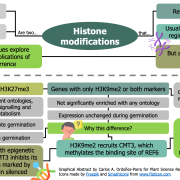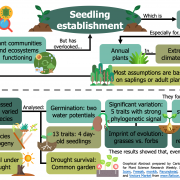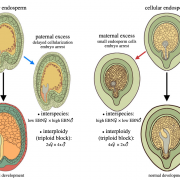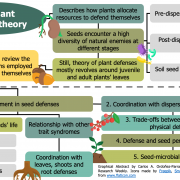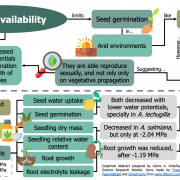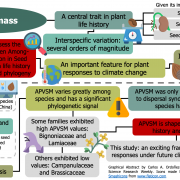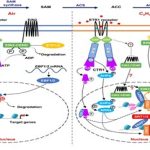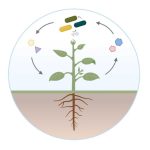Review: Why don’t genetically identical seeds germinate at the same time?
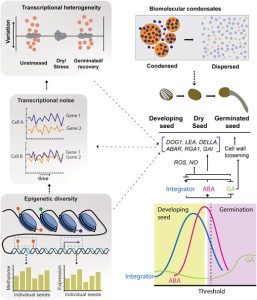 If you’ve ever conducted a germination experiment, you’ve probably asked yourself: what causes seeds to germinate at different times? The most obvious answer would be to point to genetic differences, but this phenomenon also occurs in genetically identical seeds. In this exciting paper, Sharma and Majee bring us a comprehensive review of the different physiological and molecular mechanisms that have been proposed, including transcriptional heterogeneity and noise, epigenetic diversity, and biomolecular condensates. All these mechanisms point out potential sources of variation in gene expression, phytohormone concentrations and the biochemical availability of these compounds that can lead to a seed germinating more or less quickly. The review also discusses the ecological advantages of seed germination variability and how modern techniques, such as seed priming, can reduce it and ensure higher synchronization in agricultural contexts. While there does not appear to be a definitive answer to explain germination heterogeneity, this review paves the way for future research to help us understand the mechanisms behind it. (Summary by Carlos A. Ordóñez-Parra @caordonezparra) J. Exp. Bot. 10.1093/jxb/erad101
If you’ve ever conducted a germination experiment, you’ve probably asked yourself: what causes seeds to germinate at different times? The most obvious answer would be to point to genetic differences, but this phenomenon also occurs in genetically identical seeds. In this exciting paper, Sharma and Majee bring us a comprehensive review of the different physiological and molecular mechanisms that have been proposed, including transcriptional heterogeneity and noise, epigenetic diversity, and biomolecular condensates. All these mechanisms point out potential sources of variation in gene expression, phytohormone concentrations and the biochemical availability of these compounds that can lead to a seed germinating more or less quickly. The review also discusses the ecological advantages of seed germination variability and how modern techniques, such as seed priming, can reduce it and ensure higher synchronization in agricultural contexts. While there does not appear to be a definitive answer to explain germination heterogeneity, this review paves the way for future research to help us understand the mechanisms behind it. (Summary by Carlos A. Ordóñez-Parra @caordonezparra) J. Exp. Bot. 10.1093/jxb/erad101


